
The Next Generation Internet (NGI) Forum 2025, the flagship event of the European Commission’s NGI initiative, took place in Brussels on 19-20 June, with over 200 on-site participants and many more via web stream. The Forum focused on accelerating the shift from research and experimentation to the deployment of sovereign, open digital infrastructures.
Organised by the NGI Outreach Office in collaboration with the European Commission’s NGI Unit at DG CONNECT, the Forum centred on the theme: “Building an Open Internet Stack for European Digital Sovereignty.”
In the opening remarks, Dr. Monique Calisti, director of the NGI Outreach Office and CEO of Martel Innovate, reflected on NGI’s journey since its inception:
“Since the very first edition of the NGI Forum in 2017, many things have changed. The NGI ecosystem has grown and many important results have been achieved. All open source components and projects that the NGI has financed create a solid foundation for what comes next, the Open Internet Stack. The NGI community must take this opportunity as a way to contribute even more tangibly to the strategic autonomy and digital sovereignty of Europe. We are ready for this change of gear!”
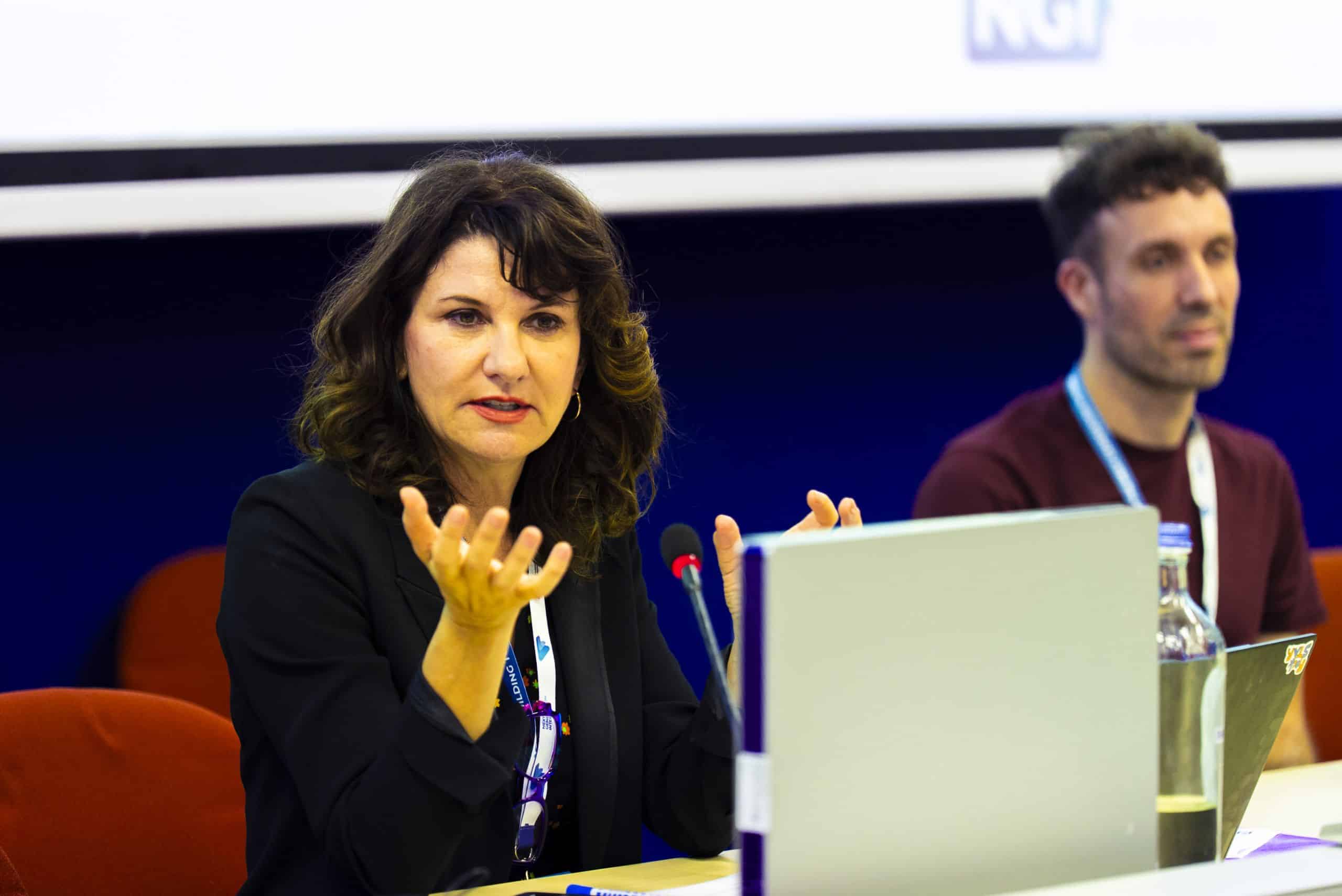
Digital commons as pillars of European digital sovereignty
The first day of the Forum kicked off with a focus on Digital commons, underlining their foundational role in enabling Europe’s technological sovereignty. The morning sessions, organised under the NGI Commons project umbrella, highlighted both conceptual frameworks and concrete tools for sovereignty-driven innovation.
“Digital commons tools for building digital sovereignty” session (moderated by Dr. Monique Calisti, with Sean Bohan – OpenWallet Foundation, Denis Jaromil Roio – Dyne.org Foundation, Pascal Steichen – Luxembourg House of Cybersecurity, Karin Lammers – independent consultant, and Rob Van Kranenburg – Martel Innovate), explored how open source technologies can underpin a more autonomous and resilient European digital landscape. Sean Bohan highlighted the importance of interoperable digital wallets, calling them the browsers of the future and essential public infrastructure. Panelists emphasized the need for better governance, marketing, and education around open source projects, as well as addressing security and standardization challenges. The discussion underscored that true sovereignty does not mean isolation, but rather strategic autonomy built through collaboration, inclusivity, and investment in the open digital commons as a shared societal and economic asset.
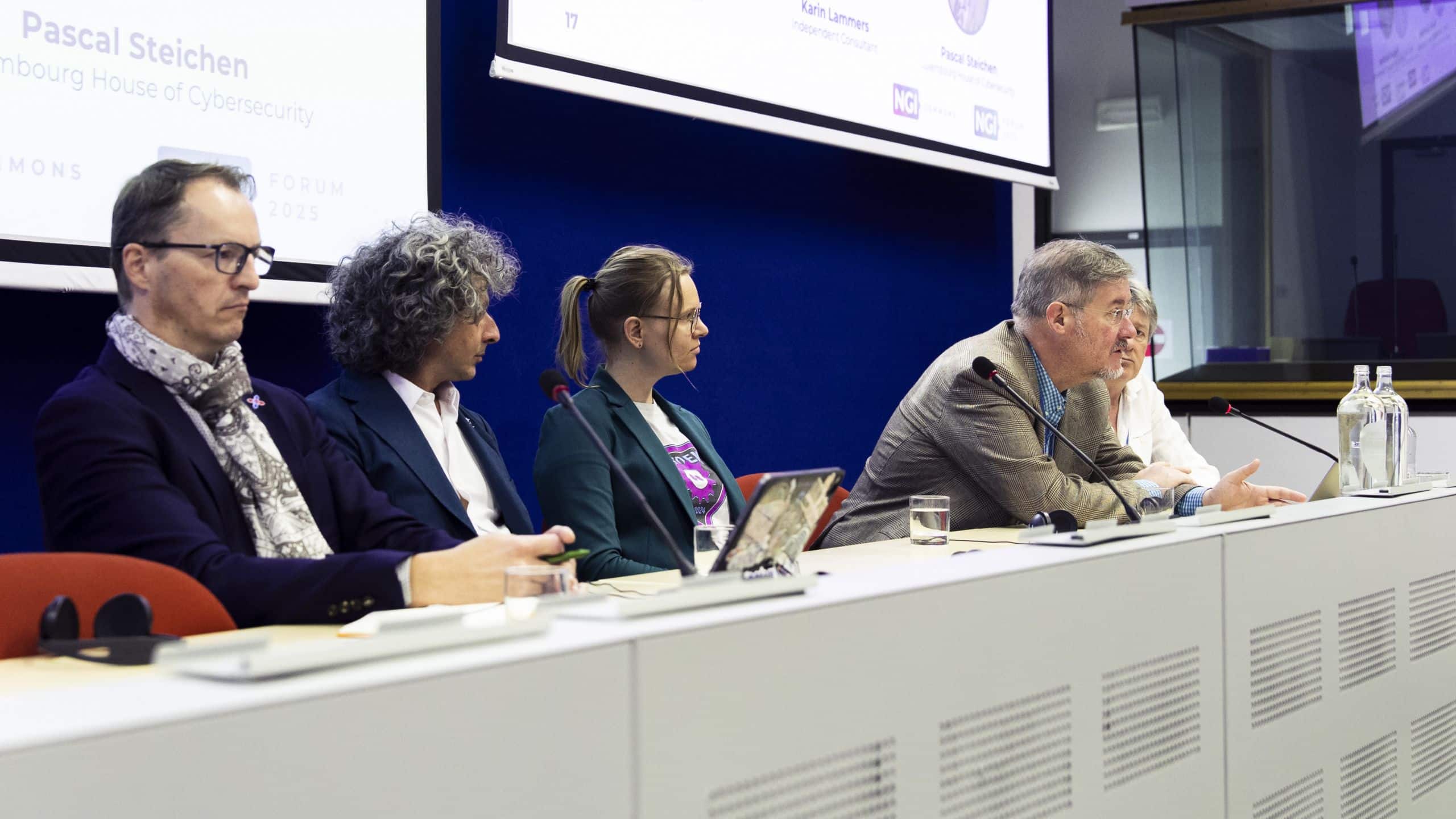
“Towards a strategic agenda for the digital commons” session (moderated by Paul Keller – Open Future Foundation, with Robin Berjon – IPFS Foundation, Lukasz Klejnowski – European Parliament, Isabelle Zablit Schmitz – digital health expert), and Rob Van Kranenburg – Martel Innovate), highlighted the need to elevate digital commons from innovation initiatives to core public infrastructure. The discussion stressed the role of governance, regulation, and public procurement in fostering a sustainable digital ecosystem. The speakers emphasized aligning funding, governance, and technical standards to ensure Europe’s digital sovereignty. They called for shifting investment from experimental projects to long-term infrastructure, enabling democratic control over key technologies. The session concluded that achieving sovereignty requires strategic coordination, institutional support, and a stronger European presence across all layers of the digital stack.
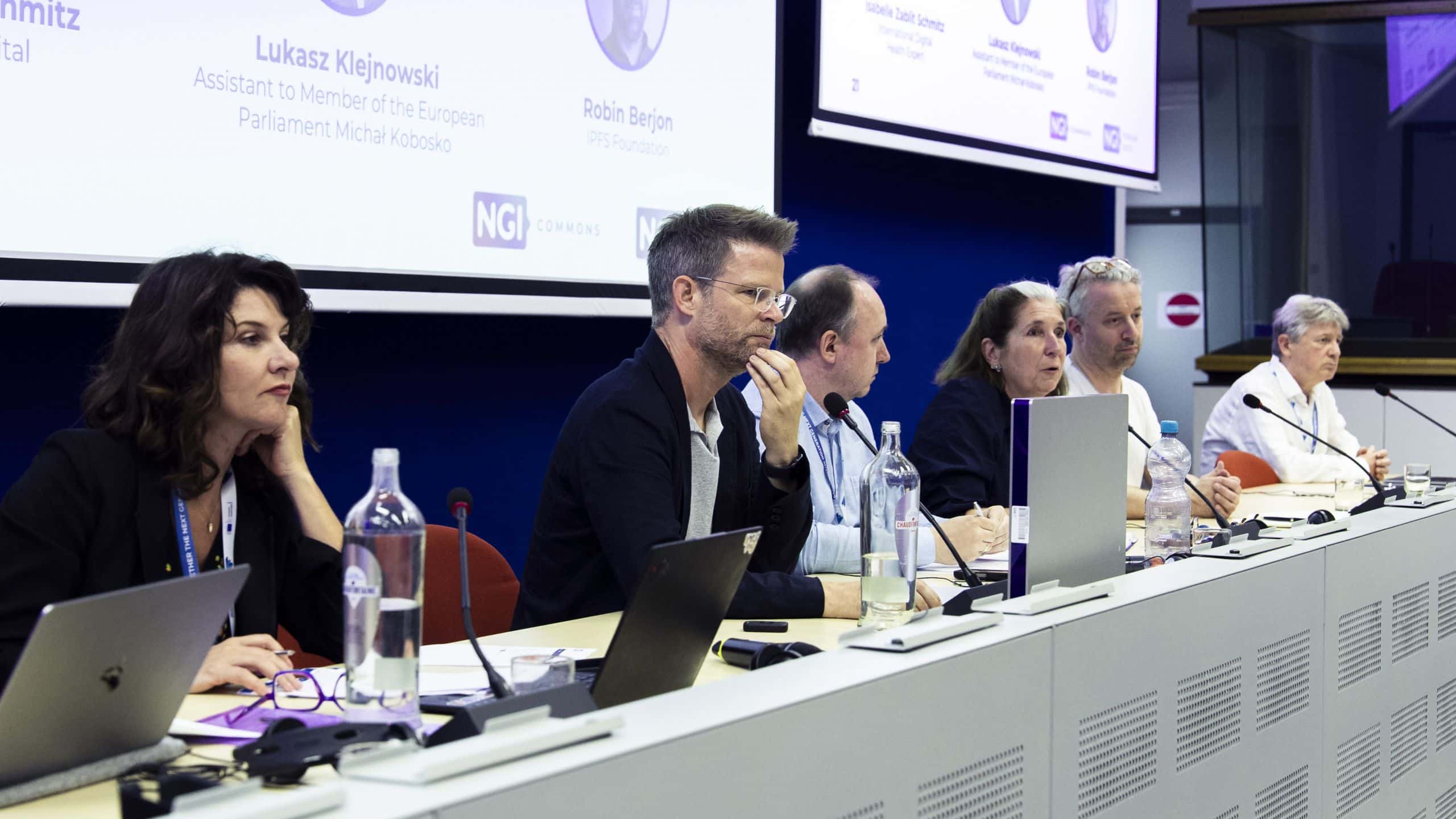
NGI Impact Stories: open source shaping real-world change
The NGI Forum 2025 dedicated a session to showcasing concrete results from NGI-funded projects that are helping to shape a more trustworthy, resilient, and democratic internet. Moderated by Rob Van Kranenburg, from Martel Innovate, the session highlighted the personal and institutional journeys of developers and entrepreneurs who have translated NGI support into impactful innovation.
Martin Schanzenberger, from Taler, presented the privacy-preserving payment system designed with accountability in mind: while payers remain anonymous, recipients are identifiable for tax purposes. The system supports proximity-based transactions and aims to be easily integrated into platforms like Mastodon. His approach emphasized solving practical problems incrementally rather than fixating on scaling from the outset.
Ludovic Dubost, representing XWiki and CryptPad, discussed how NGI funding allowed his team to employ professional developers and strengthen their credibility. While technology development has advanced significantly, he stressed the need for parallel investment in marketing to increase adoption.
Karolin Varner, from Rosenpass, emphasized the link between secure communication and democratic resilience. With quantum computing posing a threat to privacy, Rosenpass has implemented post-quantum cryptographic protocols in tools like WireGuard VPN. NGI support enabled the project’s first release and bolstered real-world security, contributing to digital peace infrastructure.
Alejandra Gonzalez, of Decidim, introduced the platform as a digital commons built for participatory democracy. Entirely open source and guided by a social contract, Decidim is governed by its community rather than by commercial interests. NGI helped improve documentation and usability, reinforcing Decidim’s mission of empowering marginalized voices and supporting institutional adoption over venture capital funding.
Renaud Chaput, from Mastodon, reflected on the operational challenges of growth. While technical scalability is manageable, human resources for moderation, trust, and safety are harder to scale. He called for greater attention to governance, legal infrastructure, and sustainable funding to ensure open platforms can mature without compromising their values.
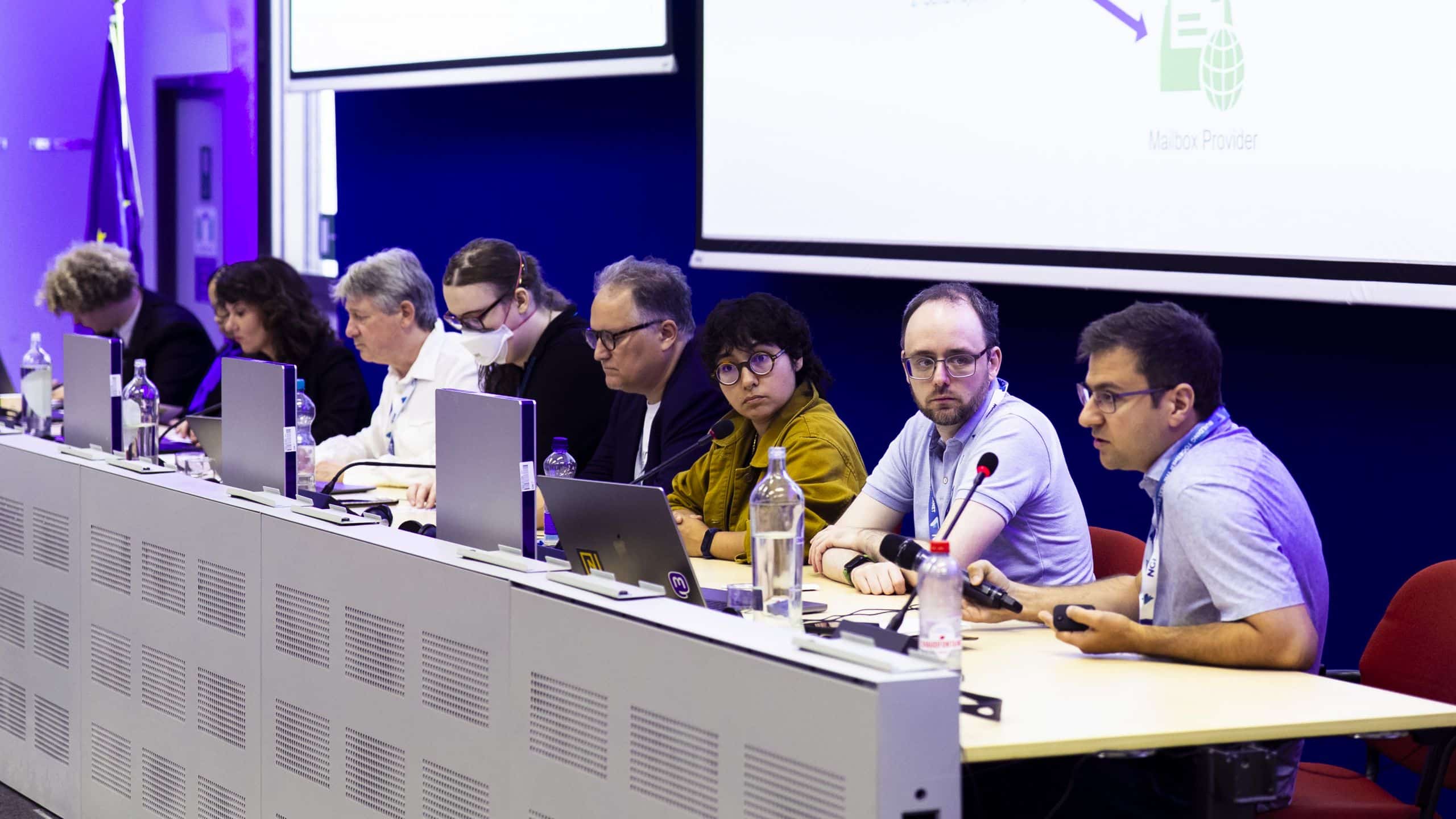
Keynote spotlight: a call to action for sovereignty
The keynotes at the NGI Forum 2025 offered both a strategic vision and a political imperative for Europe’s digital future. Thibaut Kleiner, Director at DG CONNECT, delivered an address on the urgency of transforming Europe’s open source strength into tangible digital sovereignty.
“We do the work, but we don’t monetise it,” Kleiner noted, referring to the imbalance between Europe’s leadership in open-source contributions and its continued dependence on non-European digital products and services.
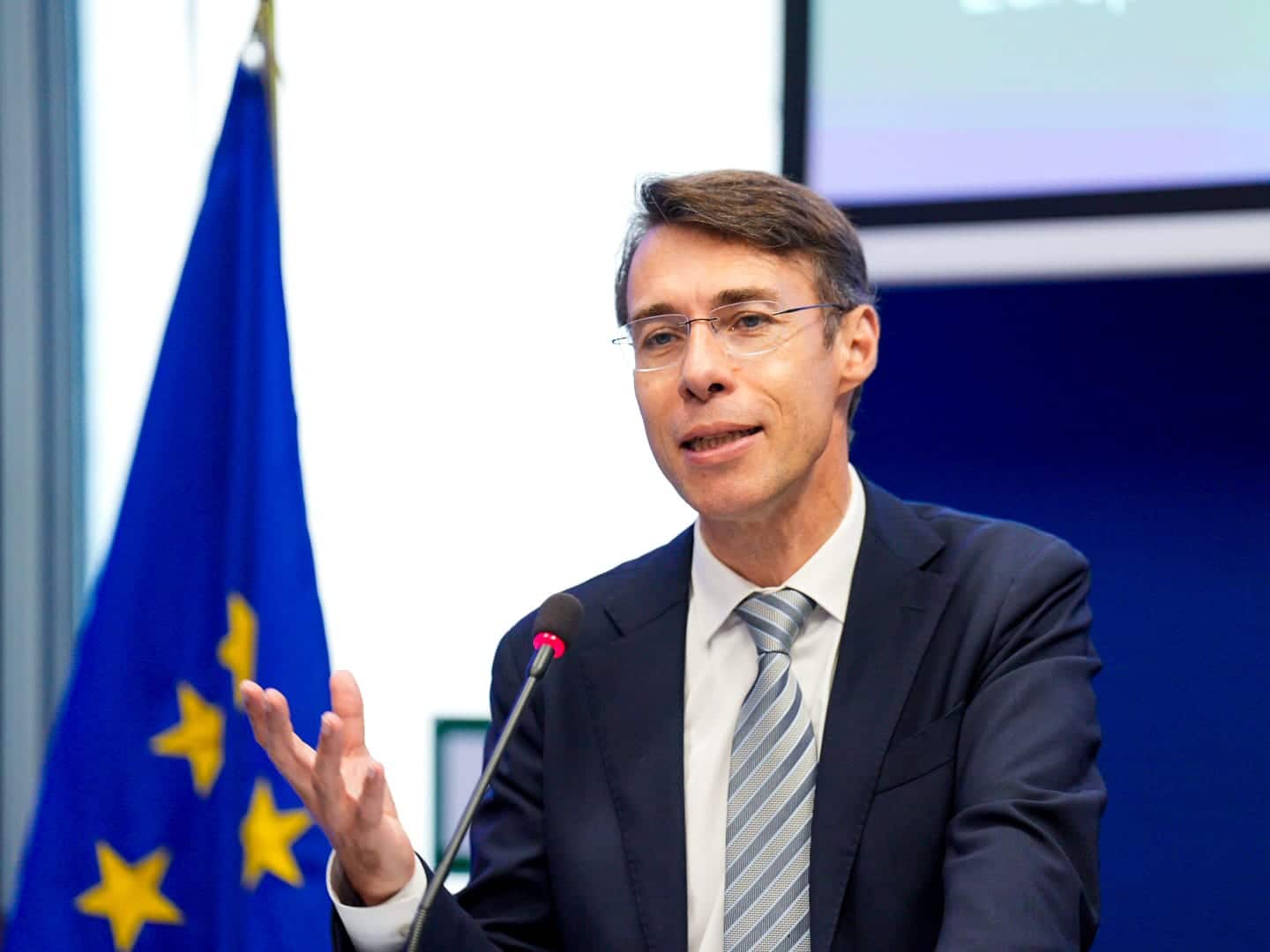
Praising the NGI initiative’s track record, including over 1,500 funded projects, Kleiner called for a coordinated European framework to elevate these innovations into widely adopted solutions. At the heart of this vision is the Open Internet Stack, an ecosystem of deployable, scalable, and secure open source technologies that support Europe’s strategic autonomy.
“The challenge is not lack of talent or creativity, but the absence of a coordinated framework to transform open-source communities into sovereign solutions,” Kleiner stated. “Today marks a changeover, from NGI to the Open Internet Stack. We want this community to continue to flourish, not only by developing code, but by ensuring it becomes the foundation for products that people will use, embrace, and promote, in Europe and beyond.”
In another keynote speech, Amandine Le Pape, co-founder of Matrix, highlighted that digital sovereignty is not about isolation, but about user choice, openness, and transparency. She challenged the idea of self-sufficiency in the digital world, arguing instead for decentralised collaboration and open ecosystems that prevent single points of control. Open source, she emphasized, enables a competitive market, enhances security through transparency, and allows users to regain control over their data. Sovereignty, she said, means being able to choose where and how digital services are hosted and governed. Ultimately, openness is not a vulnerability, it’s a strength and an opportunity.
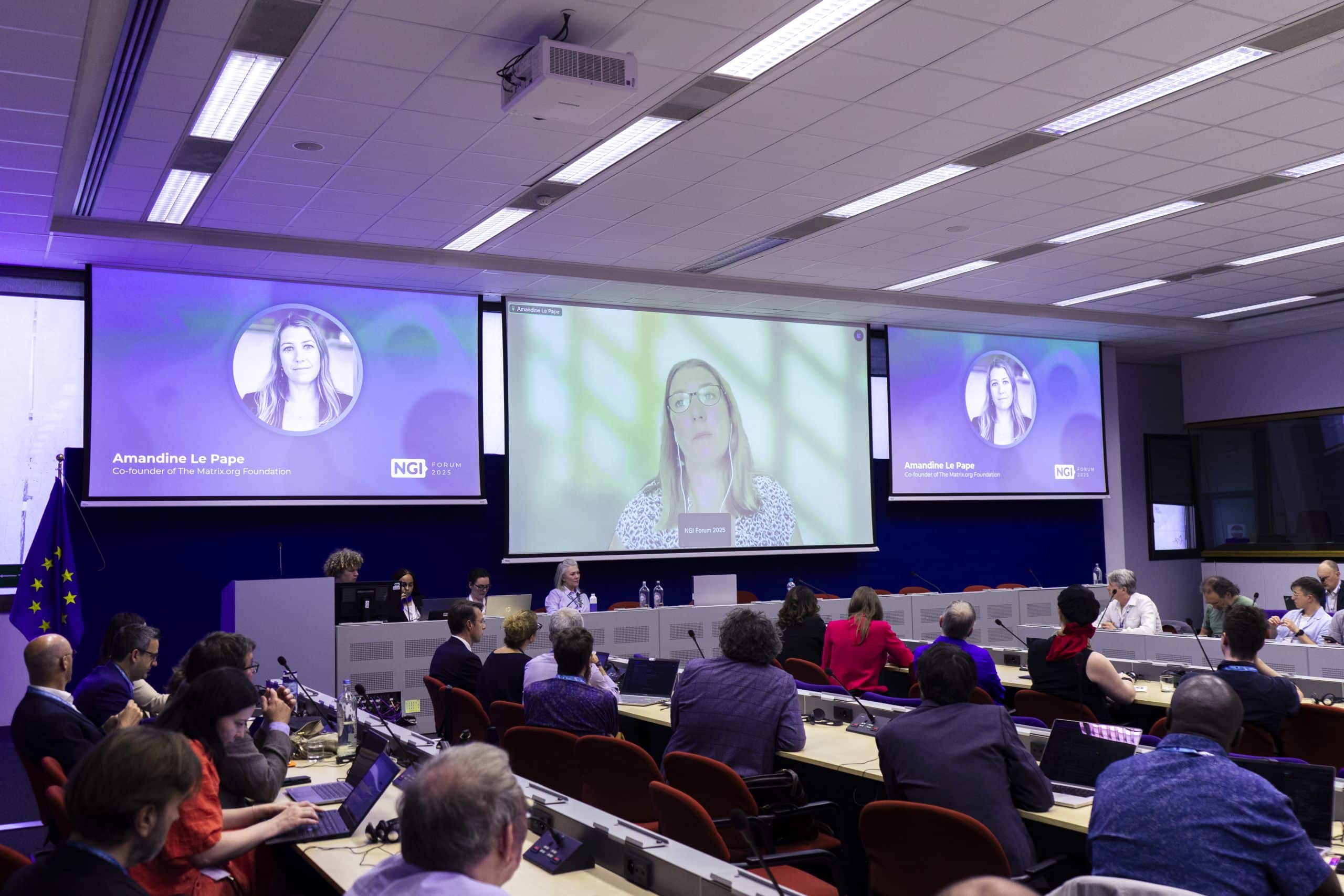
Highlights on Europe’s digital capacity and Web 4.0
The second half of Day 1 at the NGI Forum 2025 brought into focus the task of forging European digital sovereignty by building a robust, open, and interoperable internet infrastructure. Three panels explored the political, technical, and strategic dimensions of Europe’s digital independence and future web technologies.
“Forging European digital sovereignty through an Open Internet Stack”, moderated by journalist Jennifer Baker, opened the afternoon. Panelists Stuart Mackintosh (Open Digital Consulting Co), Stephanie Schaer (Dinum), Felix Reda (GitHub), and Michiel Leenaars (NLnet) discussed the critical need for open source technologies that can serve as trustworthy alternatives to proprietary digital services. They highlighted the importance of coordination across European institutions and industries to invest in shared digital infrastructure and ensure widespread adoption. Felix Reda emphasized the challenges of aligning open-source development with regulatory frameworks, while Schaer stressed the importance of public sector procurement policies that prioritize open technologies.
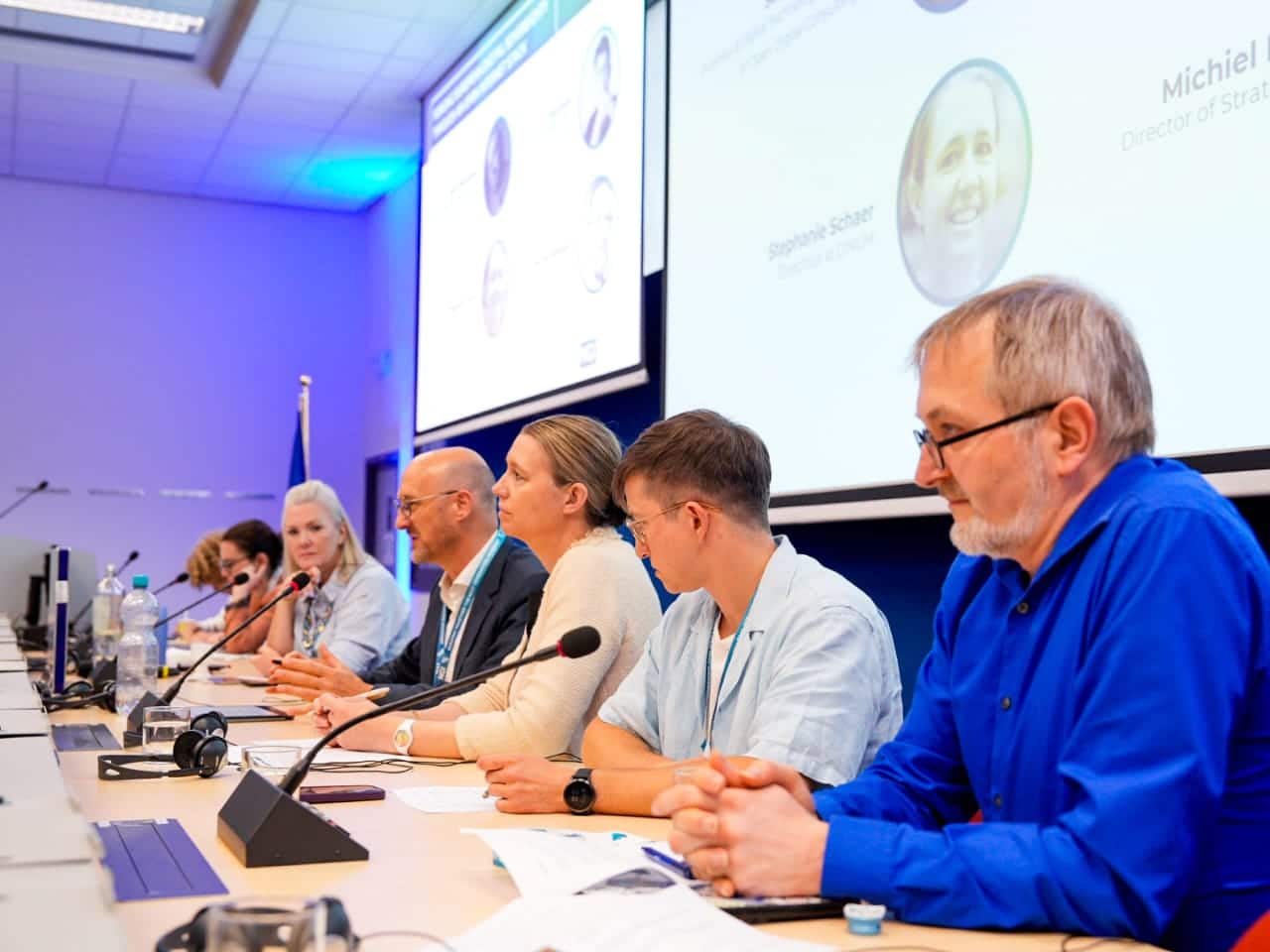
Following the coffee break, the session “Open infrastructure, sovereign future: building Europe’s digital capacity”, moderated by Sebastian Raible (APELL), zoomed in on the building blocks of digital infrastructure. Nina Müller (Nextcloud) and Nicola Rustignoli (SCION Association) highlighted secure, resilient models for cloud services and next-generation networking. Quentin Adam (Clever Cloud) advocated for industrial-grade European alternatives to hyperscalers, and Dr. Alexandros Kaloxylos (6G SNS Industry Association) brought a telecom perspective, emphasizing the necessity of including open and secure components in Europe’s 6G future. The session underscored that sovereignty is not just about independence, but about building capacity, resilience, and strategic alignment.
To close the day, “Building an open and interoperable Web 4.0 enabling virtual worlds” addressed the next frontier of internet evolution. Moderated by Dr. Monique Calisti (Martel Innovate, Digital for Planet), the panel featured Niko Bonnieure (NextGraph), Alina Kadlusky (Open AR Cloud Europe), and Fabien Benetou (Iterative Explorations SCS). They explored how emerging virtual worlds challenge the boundaries between the physical and digital, and how openness and interoperability are crucial for ensuring these new environments are aligned with European values. The session explored technical standards, economic models, and governance structures needed to shape a Web 4.0 that is immersive, inclusive, and rights-based.
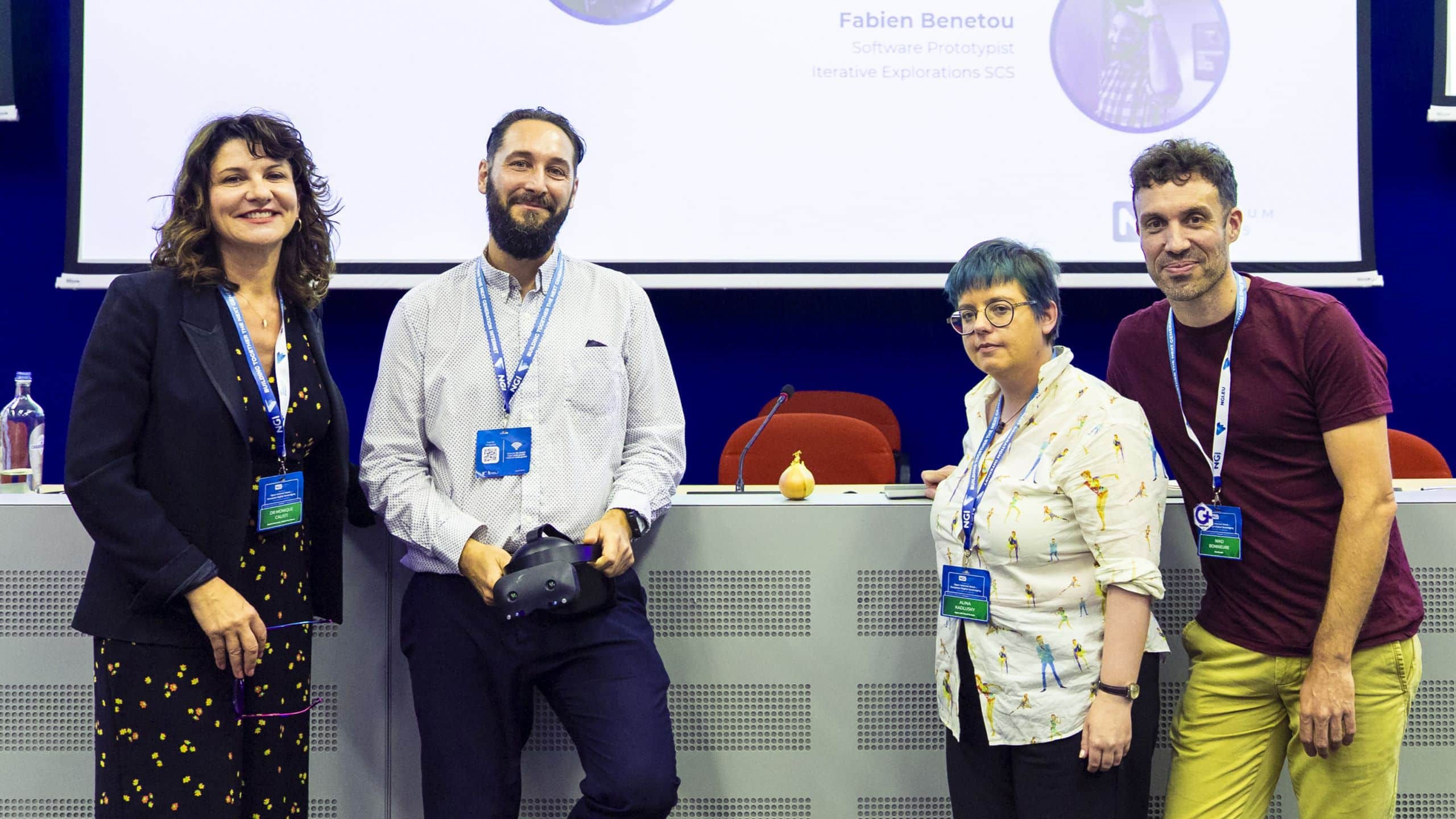
Web sovereignty: the Open Web Search agenda
The second day of the NGI Forum 2025, led by the Open Web Search, focused on shaping a strategic path for web sovereignty in Europe. Stefan Voigt from Open Search Foundation, underscored the urgency of addressing Europe’s critical dependency on foreign search infrastructure, calling for a sovereign European approach akin to the Galileo and Copernicus programs.
The keynote by Michael Granitzer from University of Passau offered an overview of the European Open Web Index (OWI). He emphasized that while the Web functions as a critical infrastructure, the EU lacks autonomy over its information systems. He described OWI not as a search engine itself, but as the backbone for building sovereign search services, operating on EU HPC infrastructure, open-source by design, and aiming to support AI, analytics, and digital services. However, he cautioned about the legal and financial hurdles in transitioning prototypes to production-ready services and urged for longer-term funding frameworks.
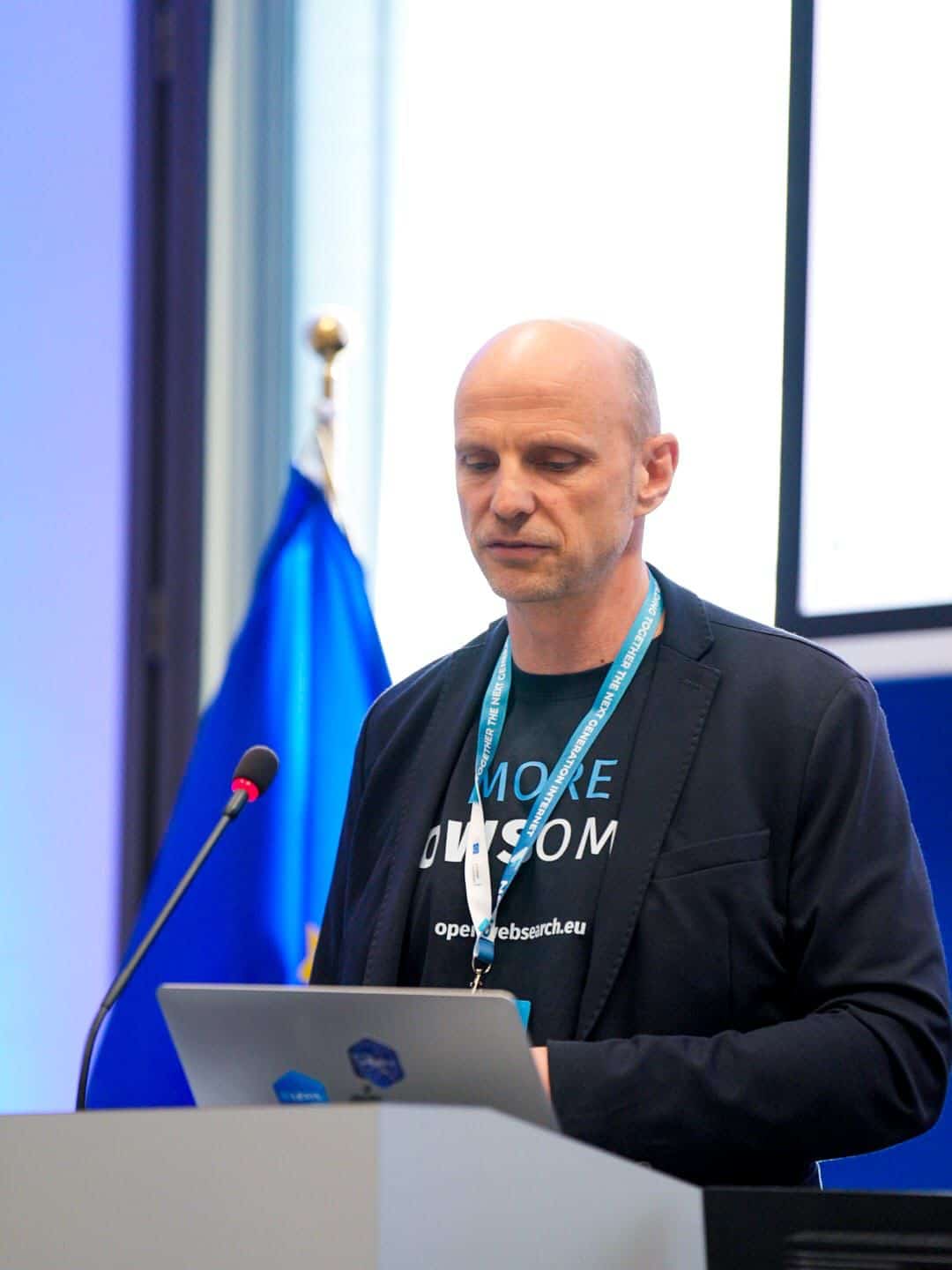
In the policy session, MEP Alexandra Geese issued a warning about the geopolitical implications of search monopolies and the dangers of a “power alliance” between US Big Tech and political actors. She advocated for Eurostack, a federated European digital infrastructure, and called for strategic action to protect knowledge, ensure democratic control, and reform procurement policies.
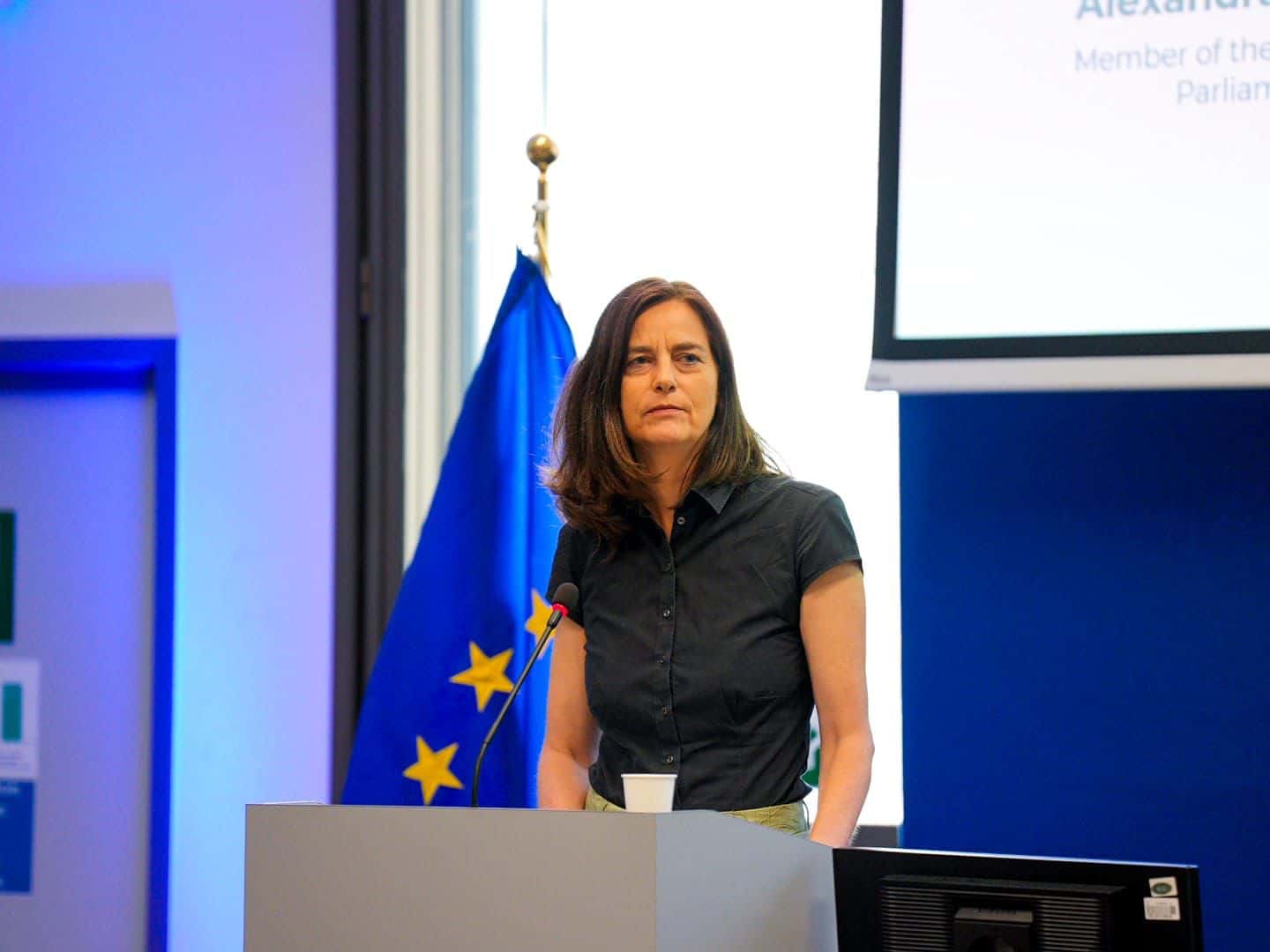
The panel on Applications of the OWI brought together voices from Ecosia, OpenEuroLLM, EC-JRC, and CSC. Wolfgang Oels from Ecosia argued for changing user habits and procurement rules, asserting that better European alternatives already exist. Jan Hajič called for clearer data-sharing frameworks to support LLM development, and Emmanuel Cartier emphasized the potential of tools like the European Media Monitor to build a trusted, independent information ecosystem.
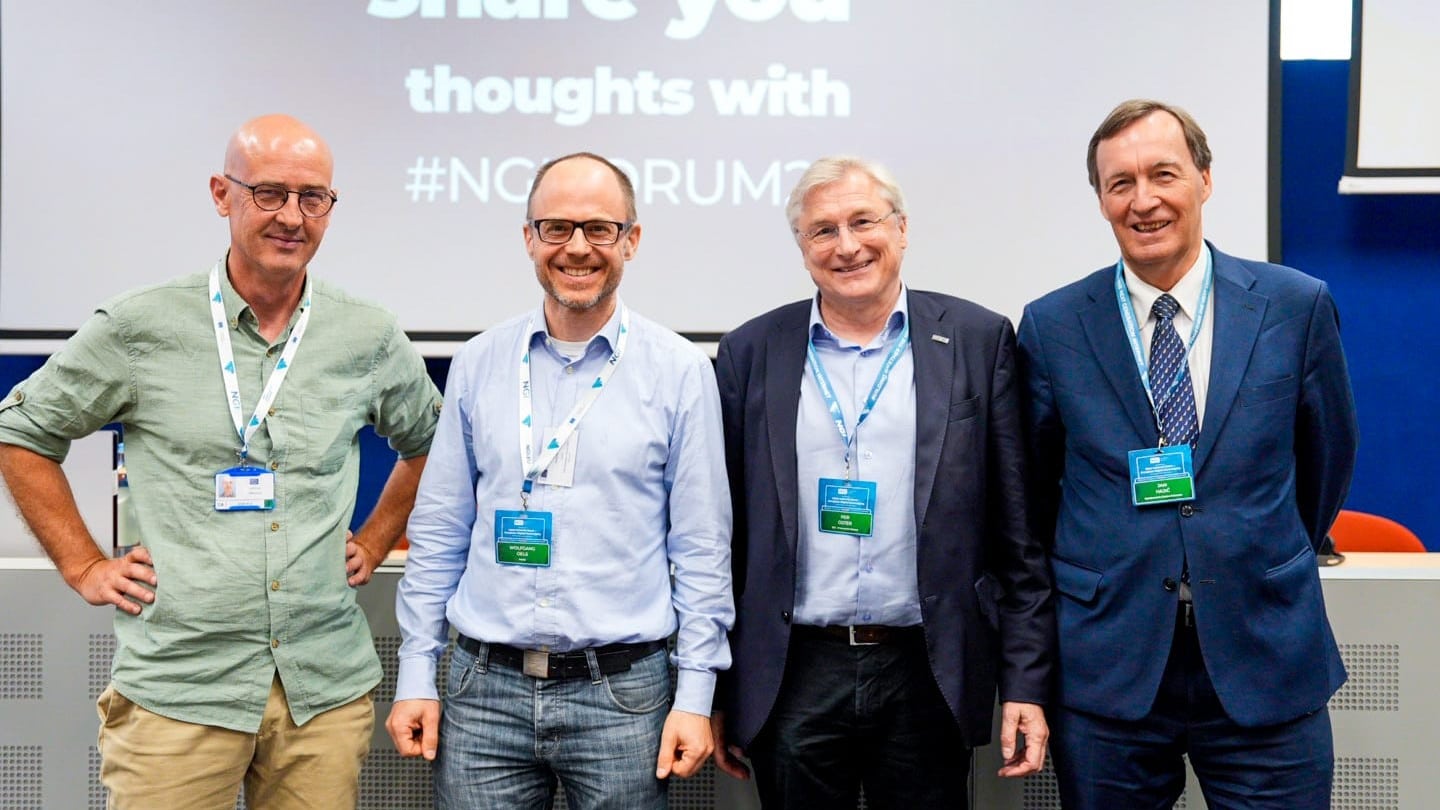
The discussion on “Web Sovereignty – Towards a Sovereign Web Tech Stack for Europe”, moderated by Stefan Voigt, featured Ana Garcia Robles (BDVA), Gaël Duval (Murena), and Renaud Chaput (Mastodon). Speakers called for more funding, awareness, and strategic alignment. Duval stressed that while technical capacity exists, market entry is hindered by dominant platforms. Chaput emphasized the importance of governance and maintaining social media platforms as public digital commons, not profit-driven ventures.
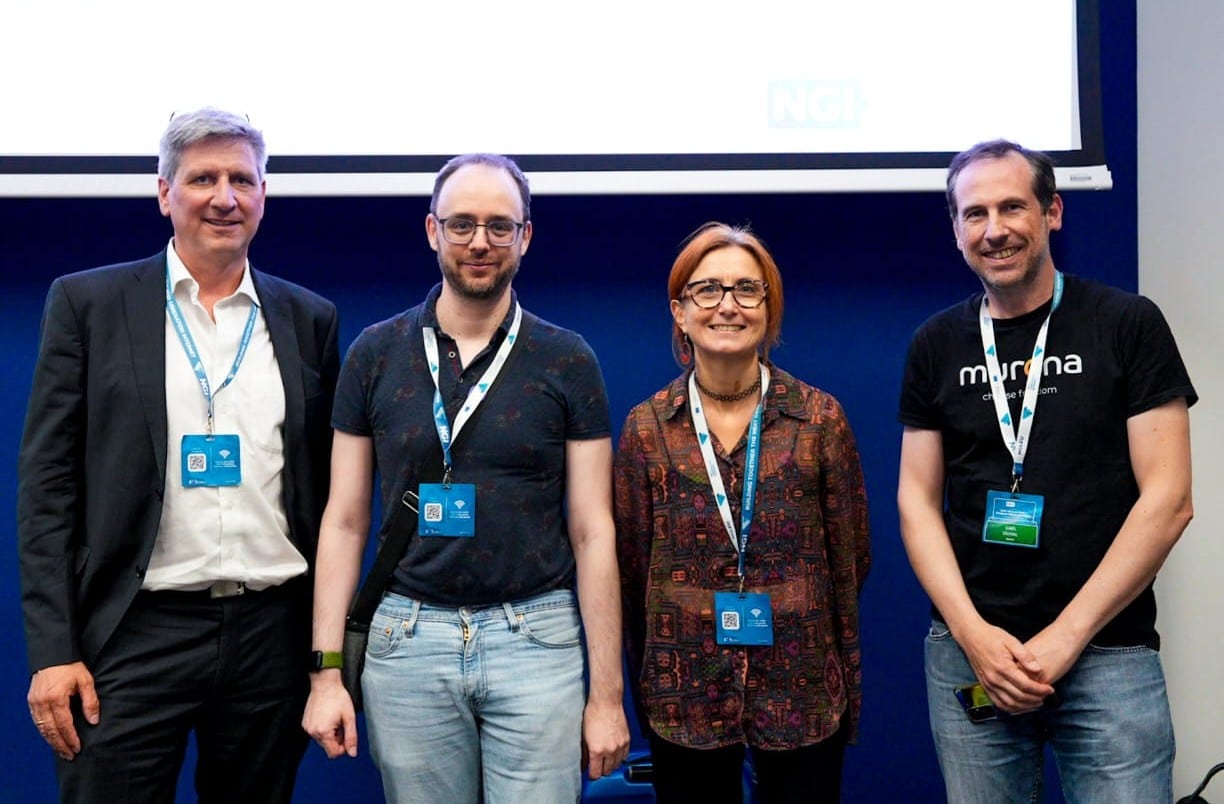
Parallel sessions: shaping NGI from the ground up
On the afternoon of Day 2, the NGI Forum 2025 offered a set of parallel sessions focused on real-world applications of NGI principles, from co-creation and digital freedom to software security and regulation compliance. These sessions brought stakeholders together around the shared goal of designing an inclusive, secure, and user-centric internet.
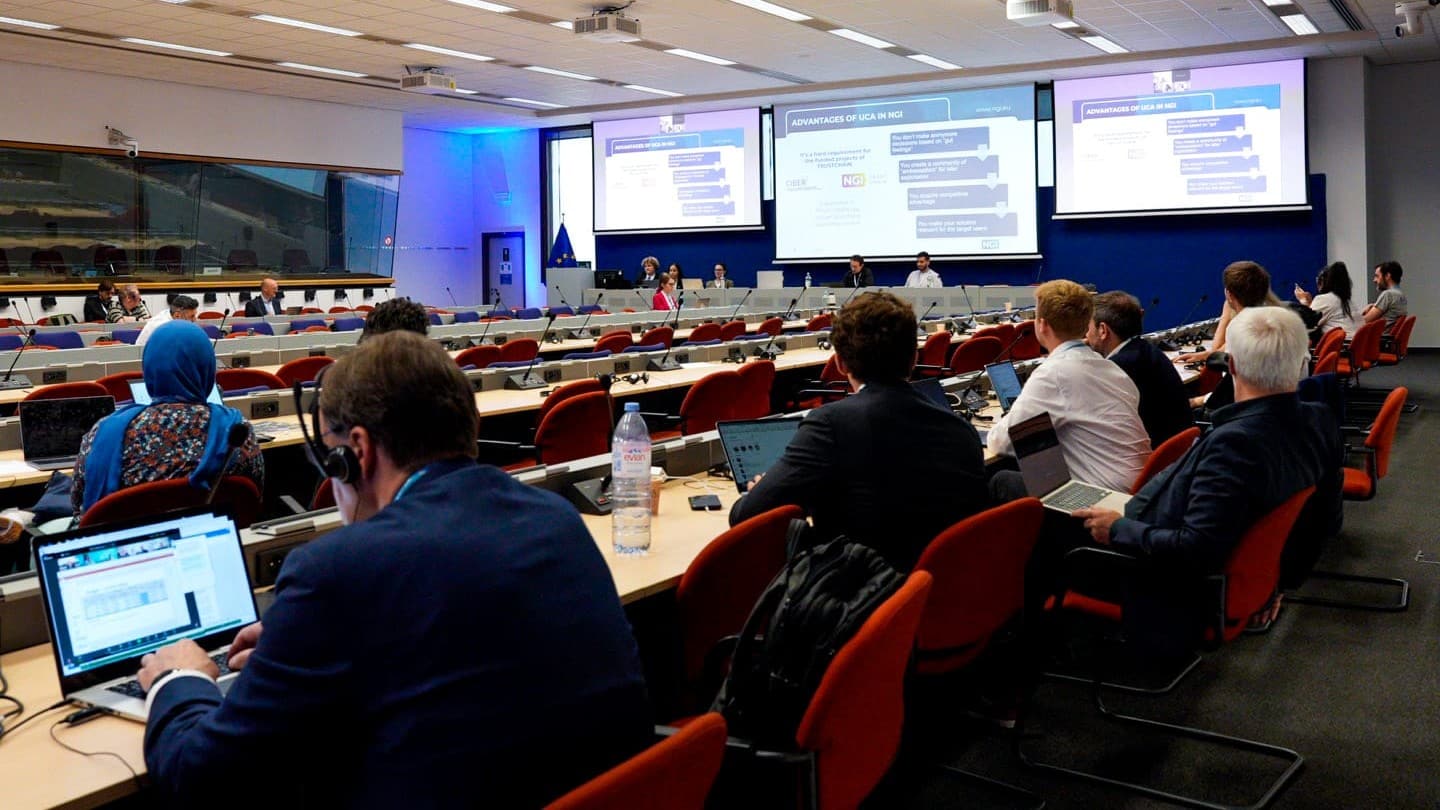
“Co-creating the building blocks of the NGI with the end-user at the centre”. Moderated by Andrés del Álamo Cienfuegos (Fundación Cibervoluntarios), this session spotlighted end-user empowerment as a cornerstone of the NGI vision. Speakers Muttukrishnan Rajarajan (University of London), Ruben Roex (Timelex), and Thanasis Papaioannou (National and Kapodistrian University of Athens) explored the challenges and opportunities of co-designing digital services that respect user autonomy, data protection, and accessibility. Discussions emphasized the importance of privacy-by-design, legal compliance, and ethical AI in fostering trust and engagement with digital services across Europe.
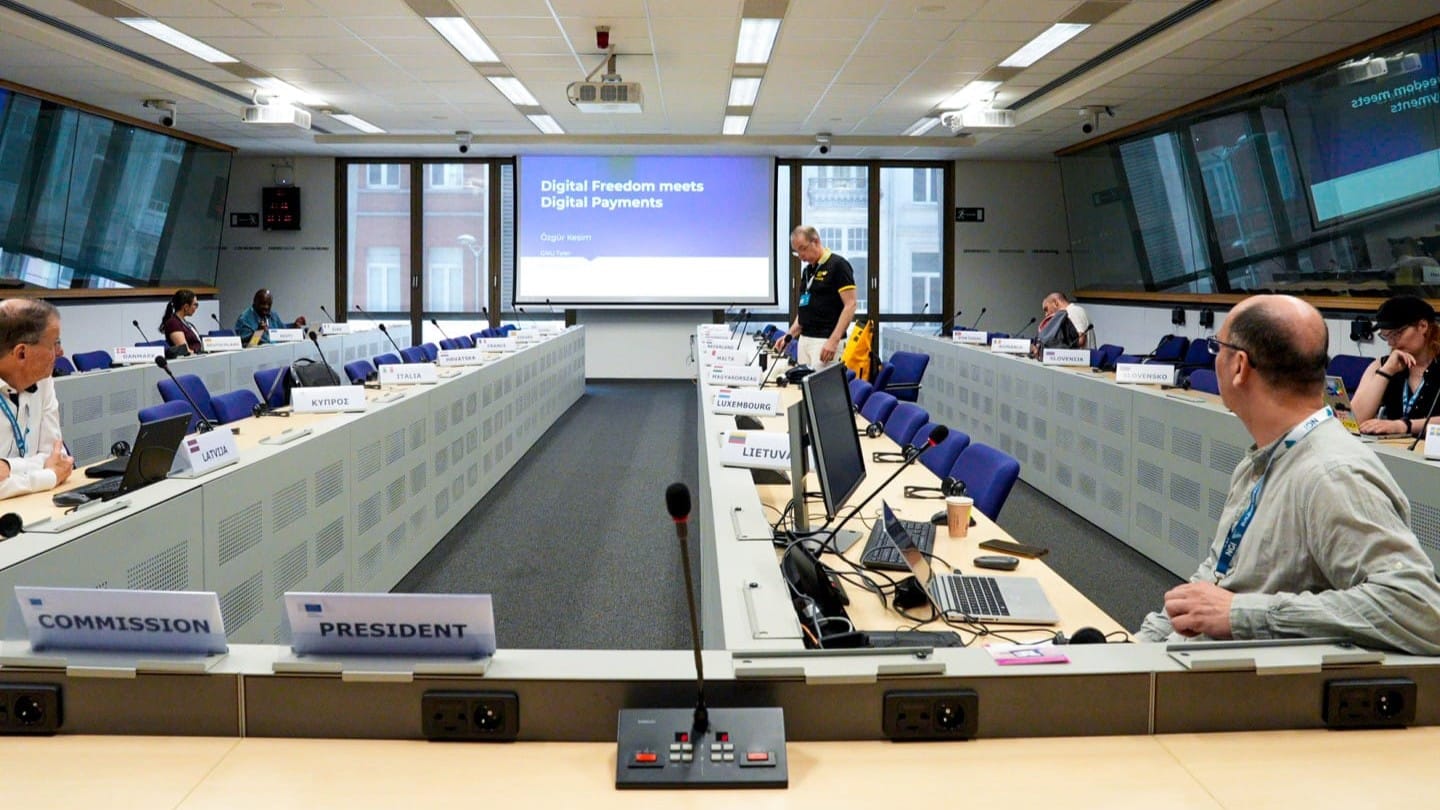
“Digital freedom meets digital payments”. Özgür Kesim delivered talk on the future of digital payments through the lens of digital freedom. He explored how decentralised payment infrastructures and open-source cryptographic tools can support financial sovereignty, prevent surveillance, and strengthen user rights.
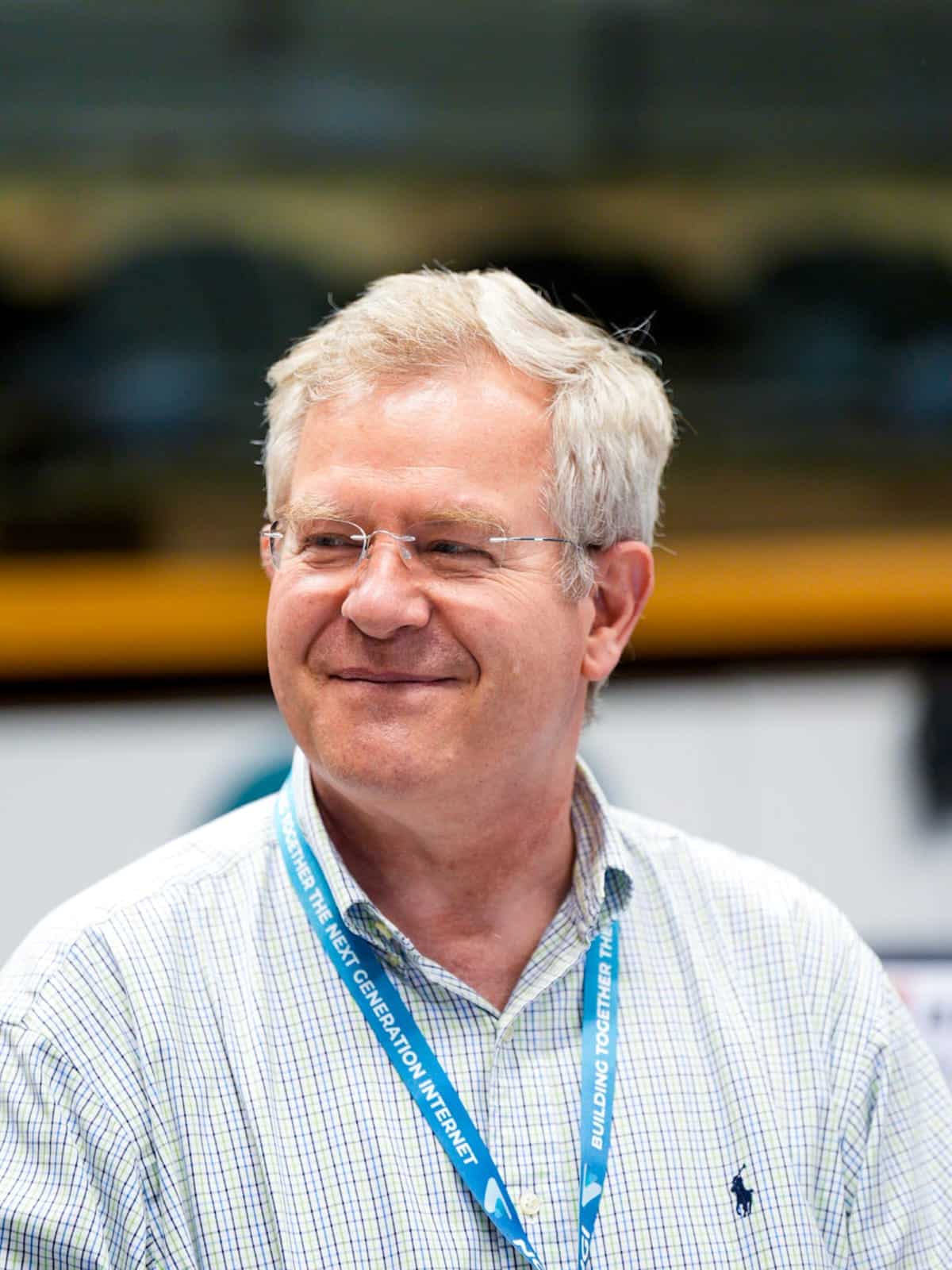
“Managing your software supply chain with NGI: security, GenAI, and CRA compliance”. In this workshop, Philippe Ombredanne (AboutCode) examined the growing complexity of managing software supply chains in the age of generative AI and tightening regulatory requirements. His presentation focused on how NGI-funded tools can help developers and organisations meet the EU’s upcoming Cyber Resilience Act (CRA), with practical solutions for ensuring transparency, provenance, and security of open-source components. The session served as both a wake-up call and a roadmap for those navigating the rapidly evolving digital compliance landscape.
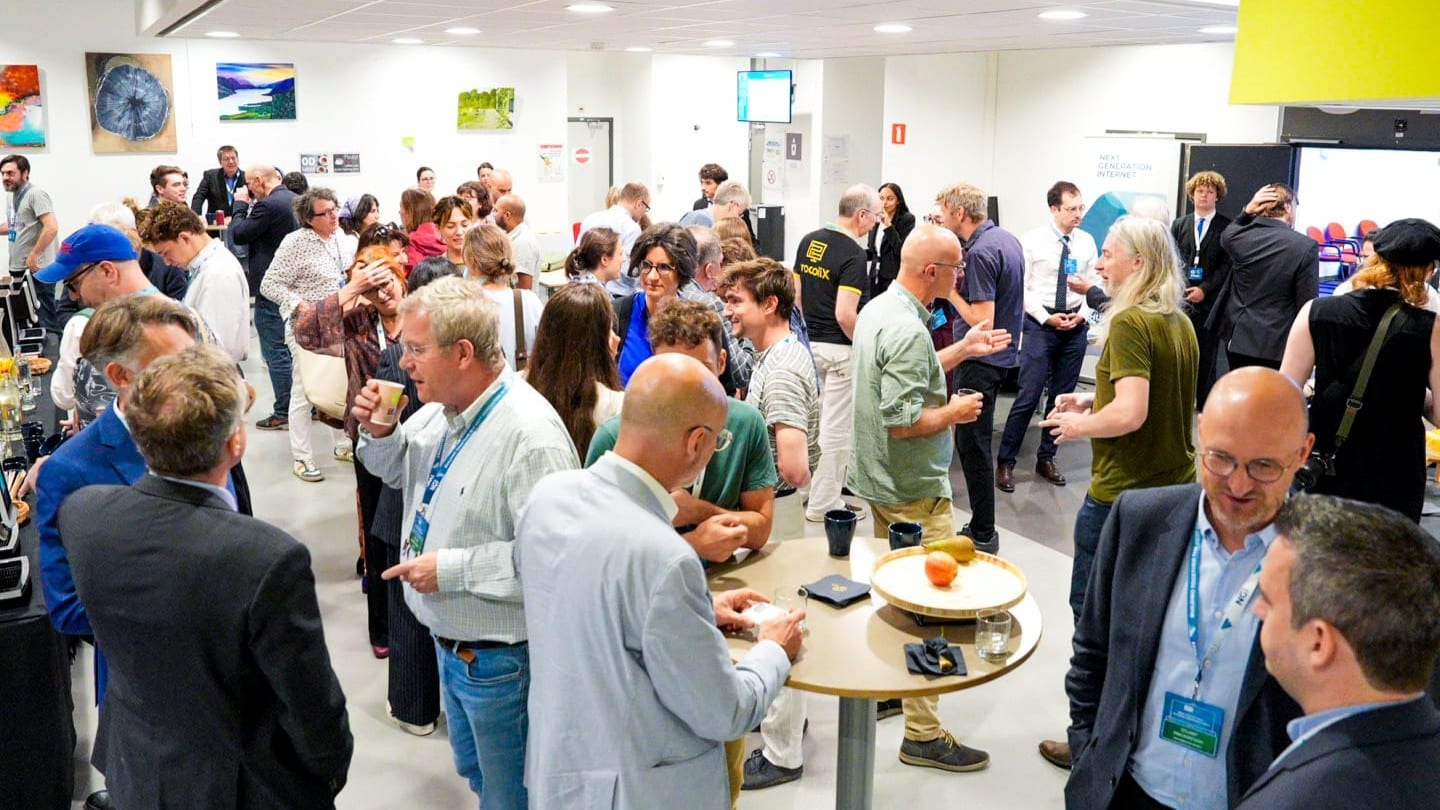
Key takeaways from NGI Forum 2025
- Europe leads the world in contributions to open-source software, yet must now ensure these translate into adopted, trusted, sovereign solutions.
- The Open Internet Stack (OIS) will be the cornerstone of this transformation, supported by new Horizon Europe investments.
- Digital sovereignty is not protectionism, it’s about building autonomy, resilience, and international partnerships rooted in shared values.
- NGI-funded projects have delivered measurable impact and created a unique community model. it’s time to scale that success.
- Open digital infrastructure, from search and identity to cloud and software governance, is now a strategic European priority.
Moving forward
As Thibaut Kleiner put it, the transition from NGI to the Open Internet Stack marks not an end, but an evolution. The Forum made it clear: the community is ready, the technology is mature, and the political momentum is here.

